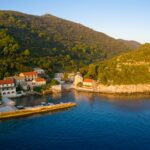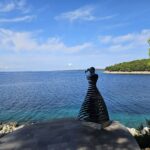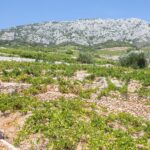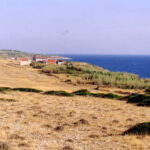First of three separate commemorations for Jasenovac victims took place today.
With a prayer for the dead and with placing of symbolic stones at the foot of the “Flower” Monument at Jasenovac, the commemoration for the victims of the Ustasha concentration camp began, organized by the Coordination of Jewish Communities as the first of three announced commemorations this year at Jasenovac, reports Večernji List on April 15, 2016.
The prayer for the dead was led by Chief Rabbi of Croatia Lucijano Moše Prelević. “We are here to pay tribute to all the victims of Jasenovac camp”, said President of the Coordinating Committee of Jewish Communities Ognjen Kraus at the beginning of the commemoration, which was also attended by representatives of the Bet Israel Jewish Community and representatives of the Sarajevo Jewish Community.
The commemoration was also attended by the president of the Serbian National Council Milorad Pupovac and the member of Parliament Mile Horvat, former Croatian President Ivo Josipović, and Zoran Pusić on behalf of the Anti-Fascist League of Croatia. Also present were president of the Reformists Party Radimir Čačić, the member of Parliament Furio Radin who represents Italian national minority, Austrian Ambassador to Croatia Andreas Wiedenhoff and Israeli Ambassador Zina Kalay Kleitman.
The official commemoration for the victims of the Jasenovac camp, organized by the Jasenovac Memorial Area, will be held next Friday, but the Coordination of Jewish Communities refused to participate in it and today organized its separate commemoration. They explained the boycott with their disagreement with the policy of inaction in relation to the changes of the exhibition at the Jasenovac museum, as well as with daily political events which relativize and revitalize the Ustasha movement.
The official commemoration on 22 April will not be attended by the Union of Antifascist Fighters of Croatia which will organize its own separate commemoration on 24 April.
From August 1941 to April 1945, Jasenovac was a death camp where men, women and children were killed due to their religious, national or ideological identity. The list of individual victims of the camp currently contains names of 83,145 victims, mostly Serbs, Roma, Jews, and Croats.







